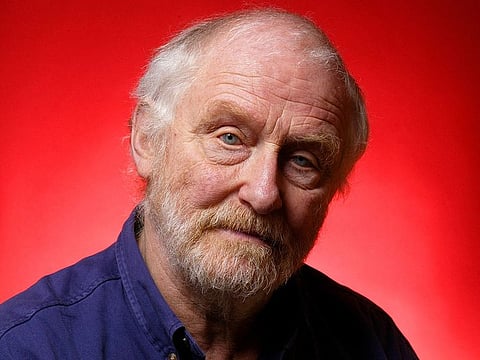Hollywood: 'Get Carter' and 'Croupier' British director Mike Hodges passes away at 90
His demise was announced by Mike Kaplan, long-time friend and producer

Director Mike Hodges, best known for helming 'Get Carter' and 'Croupier', passed away at the age of 90 in Dorset, England on December 17. According to Variety, a US-based news outlet, an announcement regarding Hodges' demise was made by Mike Kaplan, long-time friend and producer of "I'll Sleep When I'm Dead."
As per a report by Variety, 'Get Carter' (1971) and 'Pulp' (1972) were two of Hodges' early crime dramas, and 'Croupier' (1999) and 'I'll Sleep When I'm Dead' were two of his last (2003). He was well recognised for his campy, stylized adaptation of 'Flash Gordon,' in addition to other crime dramas.
One of the best British gangster films ever was "Get Carter," which Hodges adapted from a Ted Lewis novel. Get Carter is a suspenseful, hard-boiled crime film that, for once, uses Michael Caine as the sure proprietor of all his unconscious authority, according to Roger Ebert.
However, "Get Carter" portrays Caine as a sure, fine, and savage, a terrific hero for an action movie. Caine has been fumbling around in a series of potboilers, weakening his acting reputation.
According to Variety, many people went back to see the original "Get Carter" when Sylvester Stallone played Caine in the 2000 remake.
Twenty-seven years later, Hodges helmed the sleek neo-noir "Croupier" (1999), starring Clive Owens as an aspiring writer who accepts a position as a dealer at an exclusive gambling establishment and finds himself involved in an unsettling theft of the establishment.
Hodges believed his career was over after "Croupier" received a lukewarm response in the U.K.
However, the movie was more aggressively promoted in the U.S., where it gained critical acclaim and had the highest box office gross of any independent film that year, resulting in a much more successful re-release in the U.K.
Michael Tommy Hodges was born in Bristol - a city in southwest England. He completed his mandatory military service by working aboard a British minesweeper after completing the prerequisites to become what is regarded as a chartered accountant in the United Kingdom.
According to a 2006 article in Senses of Cinema, "Hodges experienced a formative education regarding class barriers in the British Navy and the contrast between the images Britain presented to itself and the real experiences of working people who lived in poverty resembling the world of Hogarth. These observations would subsequently influence "Get Carter."
Hodges worked on a number of television shows, including "Sunday Break" for ABC Television, the arts programmes "Tempo" and "New Tempo" for Thames Television, and the Thames series "The Tyrant King."
He also made a film about the Vietnam War for the Granada Television documentary series "World in Action."
He wrote, produced, and directed two thrillers filmed on film for "ITV Playhouse," "Rumour" (1969) and "Suspect" (1970); as a result, he was requested to write and direct "Get Carter."
After completing his final feature film, "I'll Sleep When I'm Dead," in 2003, Hodges went on to produce the video documentary "Queen: Greatest Video Hits 2" (the band had previously written the iconic score for Hodges' "Flash Gordon") and the 2004 feature documentary "Murder by Numbers," which was co-directed by Paul Carlin and examined the long-term appeal of serial killer movies.
"Soft Shoe Shuffle" (1985) and "Shooting Stars and Further Heavenly Pursuits" (2000), the latter of which was adapted for BBC radio, are two other plays by Hodges. The radio play "King Trash" was another (2004). In 2010, "Watching the Wheels Come Off," his debut book was released.
As per a report by Variety, Hodges is survived by his wife, Carol Laws, his sons Ben and Jake Hodges, and five grandchildren, Marlon, Honey, Orson, Michael and Gabriel.
Sign up for the Daily Briefing
Get the latest news and updates straight to your inbox



